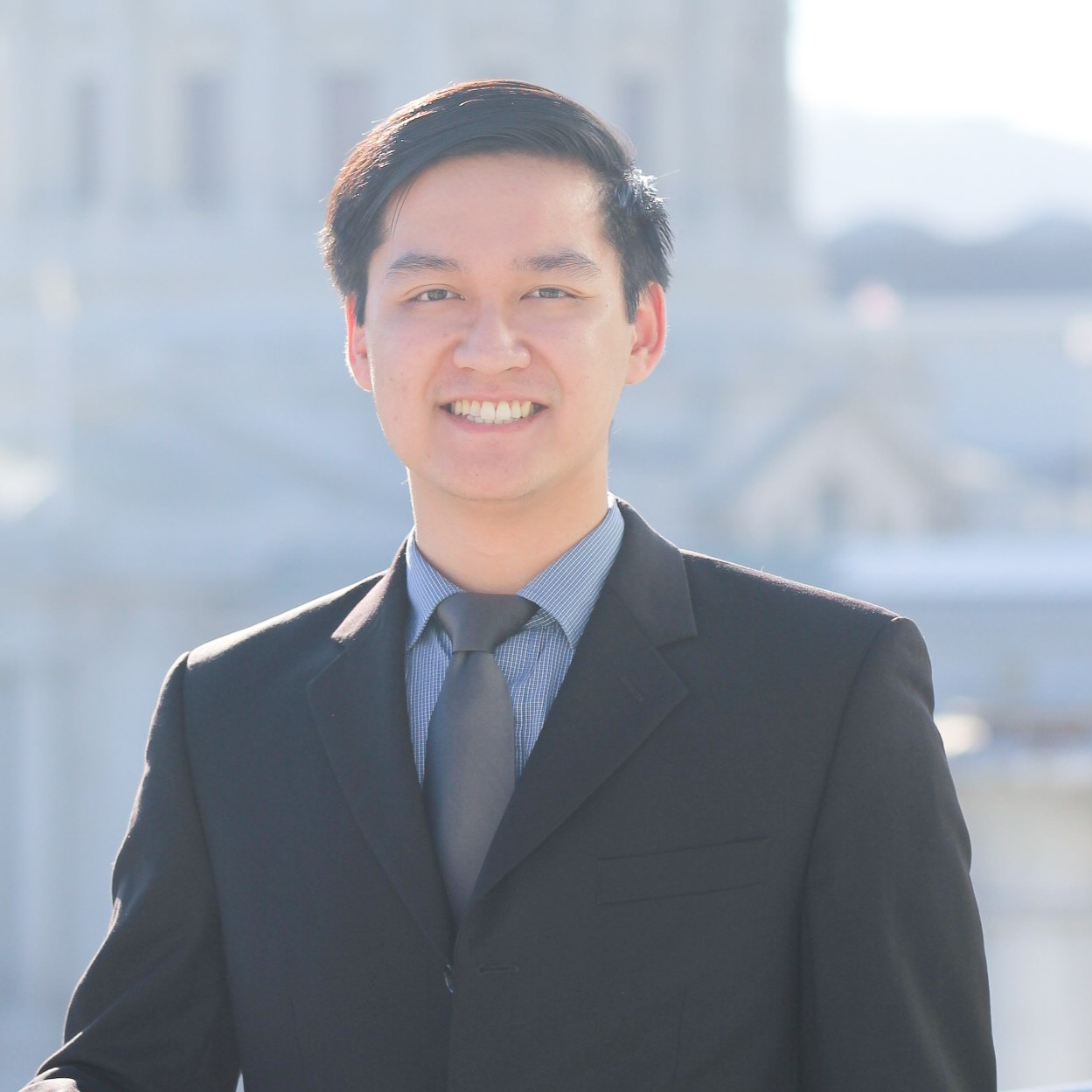Economics in Practice: Berkeley Alumni Series
We're excited to launch our "Economics in Practice" series showcasing how Berkeley Economics alumni apply their education across diverse careers. Our inaugural spotlight features Austin Hoang '23, who's leveraging his economics foundation as he pursues his law degree at Berkeley Law and prepares for an International Tax Internship at PwC.
Austin shares how Berkeley's approach to economics – particularly through policy-focused coursework and influential faculty – shaped his interest in business and tax law while providing valuable analytical frameworks for his legal studies.
What's your most memorable 'only at Berkeley' economics moment that still influences you today?
In Economics 115 (The World Economy in the Twentieth Century), Professor James DeLong challenged the idea that the Industrial Revolution was decisive for economic growth during the 20th century. It was interesting to learn about a new perspective on economic history, which reminds me to always consider and look at alternative arguments the other side in a lawsuit can raise as an aspiring attorney.
Which Berkeley economics professor or class unexpectedly changed your perspective, and how has that influenced your career?
I enjoyed taking Economics 130 (Using Economics for Public Policy) because I learned more about how economics can influence policy decisions. Afterwards, I became increasingly interested in the public policies of economics and law.
How has Berkeley's innovative approach to economics helped you stand out in your industry or career path?
I took many upper-division courses that focused on the social sciences aspect of economics. I think the many lessons I took from these courses about how economics affects real-world policy and inequality prompted me to be more interested in the policy components of law school classes, which helped me do well on exams!
How has the Berkeley economics community continued to play a role in your professional journey since graduation?
I have met many law students and lawyers who graduated from Berkeley economics! I would connect with them over our shared undergraduate education, which helps me learn more about their legal practices and form a professional connection with them.
If your economics journey was a dish or recipe, what would it be and why?
My economics journey would be a bowl of pho (Vietnamese noodle soup)! To make good quality pho, you need to spend a long time preparing the broth, which I think represents the commitment you need to get through the Economics major. Many ingredients go into a good bowl of pho, which I think resembles the many upper-division electives you have to choose from as I never knew that economics touches many areas of our society until I took my upper-division courses. Pho is a very popular Vietnamese dish, which is analogous to the popularity of the Economics major at Berkeley!
What's one quirky or memorable moment from your time in the Berkeley economics department that still makes you smile?
The Economics department graduation is a memorable moment that still makes me smile because it was a fun commemorative event of the time I spent studying Economics. It was a happy community event with many students and professors celebrating together.
What unexpected economics lesson did you learn from Berkeley campus life rather than the classroom?
Economics studies how societies and individuals make choices in the face of scarcity to allocate limited resources. I think this resembles the countless opportunities you have at Berkeley, so it is very hard to decide which to dedicate your limited time to!
What's your current role, and how did your economics education help you get there?
I am currently a law school student at Berkeley Law, and I will be working as an International Tax Intern at PwC this summer. My economics education helped me establish my interest in business and tax law!
Early Career Insight: What was your biggest challenge transitioning from student to professional, and how did you overcome it?
I went into law school straight after graduating from Berkeley Economics, so I have not yet experienced transitioning into a full-time professional job. However, the biggest challenge transitioning from undergrad to law school is that law school classes are more rigorous and time-intensive than undergraduate classes. I overcame this challenge by researching and learning about how to best prepare for and navigate law school from books and online resources.
Networking Nugget: What's your best advice for current economics students or recent graduates looking to enter your field?
For current economics students looking to attend law school, take the economics classes you are most passionate about and that you know you can excel in! You do not need to take Legal Studies 145 (Law and Economics I) if that is not your interest.
For recent graduates looking to attend law school, reach out to your former professors now for letters of recommendation so that their memory of you as a student is still somewhat fresh in their minds. Other than that, enjoy life because once law school starts, you will be quite busy!
Full Circle: If you could go back and take one additional economics class or develop one additional skill during your time at UC Berkeley, what would it be?
If I could go back and take one more economics class, it would be Economics 127 (Antitrust Economics and Law) because I would like to learn more about an area of law that I am not familiar with. The stakes in antitrust lawsuits can be very high and involve complicated, sophisticated issues that can turn on minute details, which is quite interesting to me.

